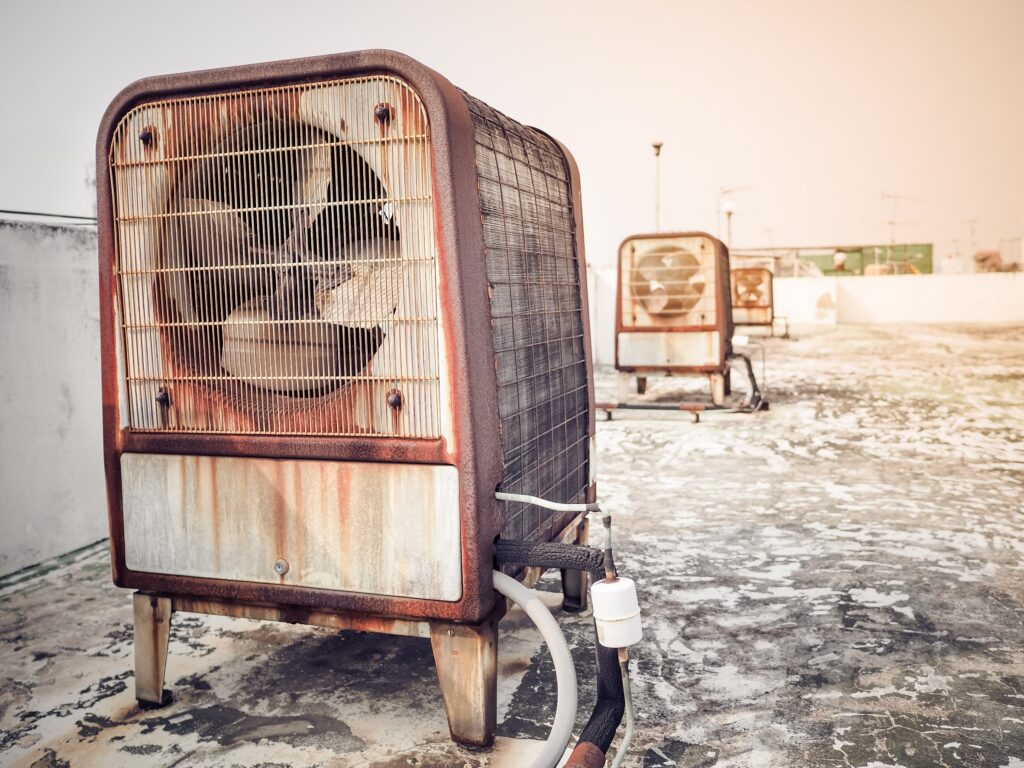Who Is Liable for Heat Sickness Due to a Broken Air Conditioner?

With record-breaking temperatures throughout the country, many restaurants, workplaces, and other public venues have overworked air conditioning systems. When air conditioners break, it can create conditions that can be hazardous to your health. In some cases, these conditions can lead to heat illness, catastrophic injuries, and even wrongful death. If you or a loved one have suffered maladies due to broken air conditioning then the injury lawyers at Patterson Legal Group can help determine heat sickness liability and get you the money that you deserve.
The trial attorneys at Patterson Legal Group have been representing injury victims in Kansas, Missouri, and Oklahoma for more than 25 years. Our lawyers have served thousands of clients and have recovered more than $250-million on their behalf. Take the first step towards the money that you deserve for your injuries and call us today at (888) 687-2400.
What If the Air Conditioning Breaks in a Public Venue?
Whether you’re eating in a restaurant, shopping at a mall, or catching a film at a movie theater, the owner of the venue has an obligation to create and maintain a safe environment. If the air conditioning breaks and leads to an environment that causes heat sickness then the owner may be liable for damages.
Kansas, Missouri, and Oklahoma have had a combination of high temperatures and high humidity throughout Summer 2023, and that combination does not appear to be going away any time soon. Property managers and owners have a duty to make sure that their ventilation and air conditioning systems are functioning properly in order to keep customers and patrons safe. Failure to live up to that duty may constitute negligence.
Heat Sickness Liability in the Workplace
Similar to how business and property owners have a duty to provide safe conditions for customers, business owners have an obligation to maintain a safe environment for employees, contractors, and visitors. Part of that obligation includes having and maintaining air conditioning. If your employer does not fulfill their duty to maintain a safe environment then they may be liable for damages and you may be eligible for workers’ compensation.
Suffering from heat sickness due to employer negligence can be a serious and costly matter. The personal injury attorneys at Patterson Legal Group are very familiar with employee rights in Kansas, Missouri, and Oklahoma. If you feel that your rights have been violated and your employer’s actions or inactions have caused you to suffer from heat sickness then contact us to explore your options.
Don’t Underestimate Heat-Related Illnesses
Some people are under the false impression that heat illness is a minor ailment that can clear up in a matter of hours. While that can be true in some cases, in others it can lead to serious injuries that take weeks to recover from. In serious cases it can lead to life-altering injuries or wrongful death.
Five of the most serious heat-related illnesses include:
- Dehydration: heat illness often results in dehydration, where the body loses more fluids than it takes in. Severe dehydration can lead to electrolyte imbalances, reduced blood volume, and impaired organ function. Extreme dehydration can cause toxic shock and may require medical assistance to rehydrate the body.
- Heat Exhaustion: a milder form of heat illness, heat exhaustion still poses risks if not treated quickly. Symptoms include heavy sweating, weakness, dizziness, nausea, headache, and rapid pulse. If left untreated, heat exhaustion can progress to heatstroke.
- Heatstroke: heatstroke is one of the most severe heat-related illnesses. It occurs when the body’s temperature regulation system fails, causing the core body temperature to rise to dangerous levels, usually above 104°F. Symptoms include a rapid and strong pulse, hot and dry skin, confusion, unconsciousness, and seizures. Heatstroke requires immediate medical attention and can lead to organ damage, brain injury, and even death if not treated immediately.
- Organ Failure: prolonged exposure to extreme heat and humidity can put significant stress on the body’s organs, leading them to fail. Severe heat can damage the kidneys, liver, heart, and other vital organs, impairing their function and potentially causing life-altering or life-threatening complications.
- Heat-Related Cardiovascular Issues: high temperatures and heat stress can put additional strain on the cardiovascular system. This can lead to increased heart rate, elevated blood pressure, and the exacerbation of existing heart conditions. Individuals with heart ailments, hypertension, or other cardiovascular-related issues are particularly vulnerable to these complications.
As you can see, heat-related illnesses can be grave and should be taken seriously. If you or a member of your family have suffered heat illness then contact Patterson Legal Group to explore your options.
Contact a Heat Sickness Liability Lawyer
In addition to staying cool in the summer, Patterson Legal Group also hopes that you and your family stay safe. If you’ve been in a place with broken air conditioning and you believe that it caused you to suffer a heat-related illness then contact our personal injury lawyers for immediate assistance. Our team can help determine heat illness liability and win you the highest compensation possible.
You can reach Patterson Legal Group 24 hours a day, 7 days a week by phone at (888) 687-2400. You can also fill out this safe and secure contact form or reach out via LiveChat. Our experienced and skilled attorneys work on a “no win, no fee” basis, so you won’t be charged a dime unless money has been recovered on your behalf. For an unbeatable combination of high-level legal services and incredible customer service, contact us today.





